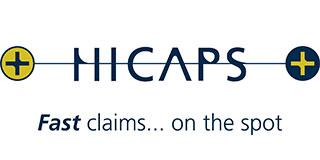How Osteopathy Can Help Treat PCL, MCL, and LCL Knee Injuries
Knee injuries are common, affecting athletes, active individuals, and even those going about their daily routines. The Posterior Cruciate Ligament (PCL), Medial Collateral Ligament (MCL), and Lateral Collateral Ligament (LCL) are three key ligaments that provide stability and support to the knee joint.
Injuries to these ligaments can lead to pain, limited movement, and instability, significantly impacting quality of life. Understanding the nature of PCL, MCL, and LCL injuries and exploring how osteopathic care can aid recovery offers a comprehensive path to healing.
At Chirn Park Health Group, our Gold Coast osteopaths are experienced in knee injury recovery, supporting individuals in regaining mobility, stability, and function.
Contact CPHG Osteopathy Gold Coast
The Function of PCL, MCL, and LCL in Knee Stability
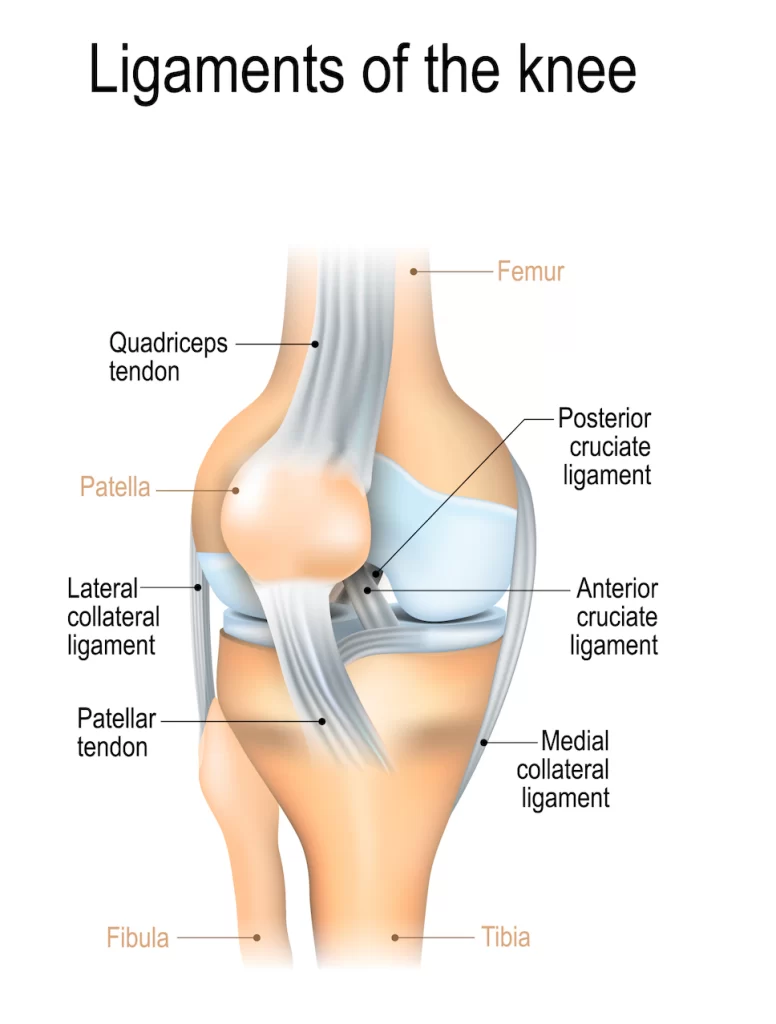
The knee is one of the body’s largest and most complex joints. It relies on the coordinated function of various ligaments and muscles to facilitate movement and provide stability.
The PCL at the back of the knee connects the femur (thigh bone) to the tibia (shin bone). Working alongside the ACL (Anterior Cruciate Ligament), the PCL prevents the tibia from moving backward, helping control backward and forward knee movement.
The MCL is positioned on the inner side of the knee, connecting the femur to the tibia. It prevents the knee from bending inward, providing critical stability, especially during movements that involve side-to-side forces.
The LCL, situated on the outer side of the knee, links the femur to the fibula, restricting outward bending. Together, these ligaments protect the knee from excessive movement and allow for smooth, stable function.
Common Causes of PCL, MCL, and LCL Knee Injuries
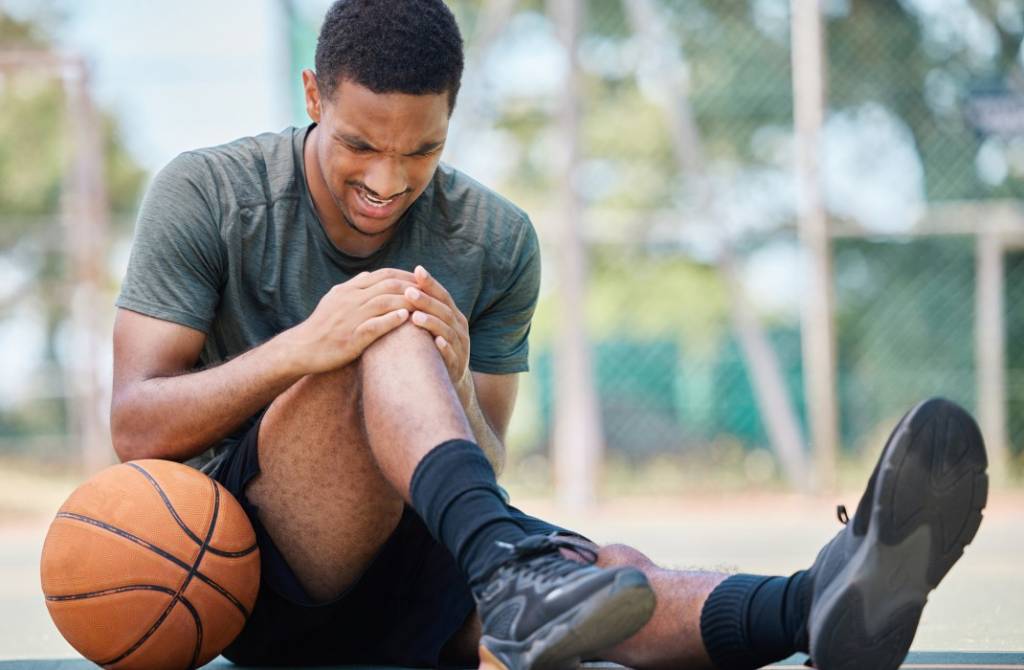
PCL, MCL, and LCL injuries often result from high-impact sports, accidents, or repetitive stress.
Each ligament is vulnerable to particular types of trauma, but they may also be injured together in severe cases, affecting knee stability.
PCL Injuries
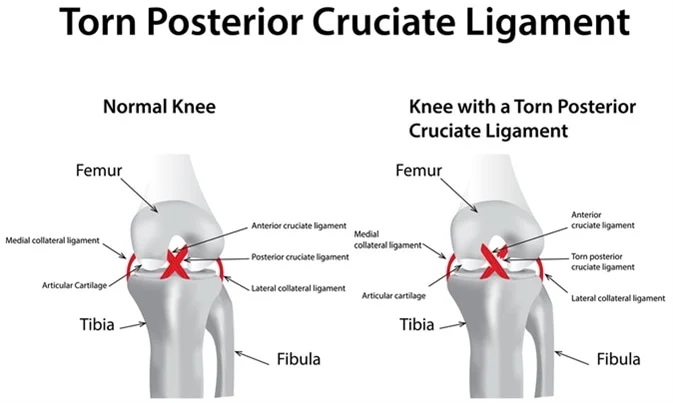
PCL injuries frequently result from a direct impact to the front of the knee while the leg is bent. Typical scenarios include falls onto a bent knee, car accidents (where the knee collides with the dashboard), or sports-related incidents.
PCL injuries can range from mild sprains to complete tears, with symptoms that may include pain at the back of the knee, swelling, and instability when walking or bearing weight.
MCL Injuries
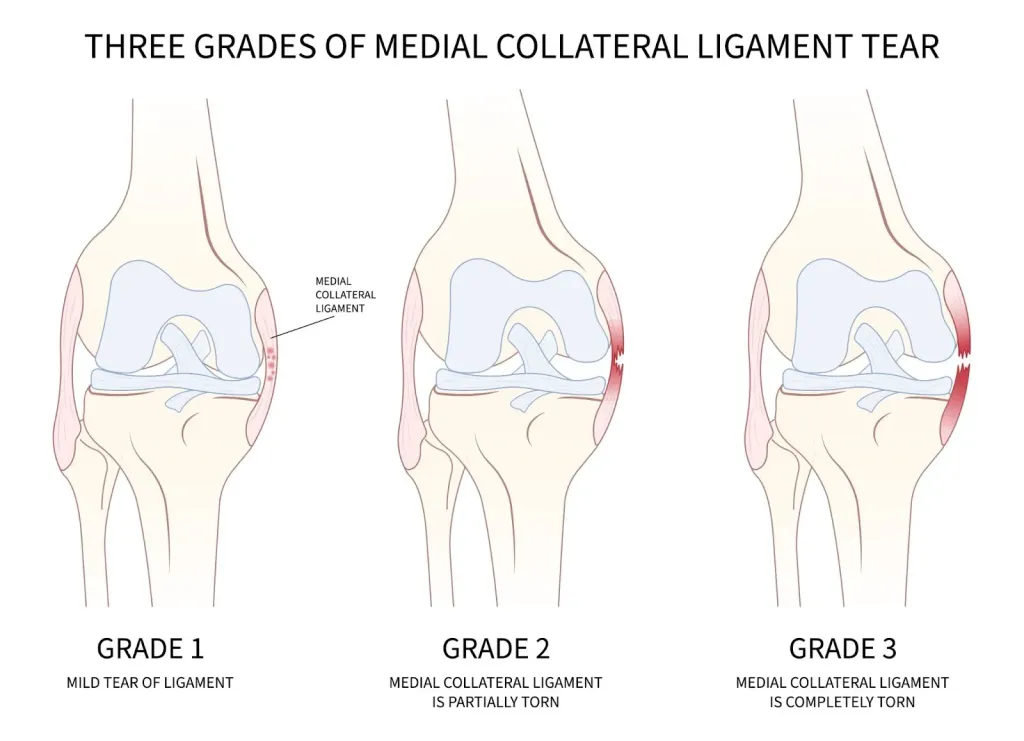
The MCL is susceptible to injury when force is applied to the outer side of the knee, pushing it inward. This type of injury is common in sports like soccer, rugby, and skiing, where sudden directional changes or collisions occur.
MCL injuries are characterized by pain on the inner side of the knee, swelling, and difficulty with side-to-side movements. Like PCL injuries, MCL damage can vary in severity from minor sprains to complete tears.
LCL Injuries

LCL injuries are less common than MCL injuries because the outer side of the knee is less vulnerable to impact. However, LCL injuries can still occur, especially during high-contact sports or activities that involve rapid lateral movements.
When injured, the LCL causes pain on the outer side of the knee, swelling, and a sensation of the knee “giving way” under pressure. Severe LCL injuries may lead to significant instability, making weight-bearing difficult.
Symptoms of PCL, MCL, and LCL Injuries

While the specific location of pain and instability will vary depending on the ligament involved, several common symptoms indicate ligament injuries:
- Pain: Pain is typically felt near the injured ligament, intensifying with movement or pressure on the knee.
- Swelling: Inflammation occurs around the knee joint, often within hours of the injury.
- Instability: A damaged ligament may cause the knee to feel unstable or as if it could “give out” when standing or moving.
- Reduced Range of Motion: Stiffness and limited mobility in the knee make bending and extending the joint uncomfortable.
- Tenderness: Pressing along the injured ligament often causes discomfort, a key indicator of ligament involvement.
It’s essential to seek a thorough assessment for knee pain or instability to diagnose the specific ligament injury and ensure appropriate treatment.
Diagnosis and Assessment of Knee Ligament Injuries
Diagnosing PCL, MCL, and LCL injuries involves a combination of physical examination and imaging tests.
A healthcare provider will assess knee stability, pain location, and range of motion through manual tests such as the valgus stress test for MCL injuries, the varus stress test for LCL injuries, and the posterior drawer test for PCL injuries.
In many cases, imaging techniques like MRI scans or X-rays provide a clear picture of the extent and location of ligament damage, guiding the treatment approach.
How Osteopathy Can Aid Recovery from PCL, MCL, and LCL Injuries
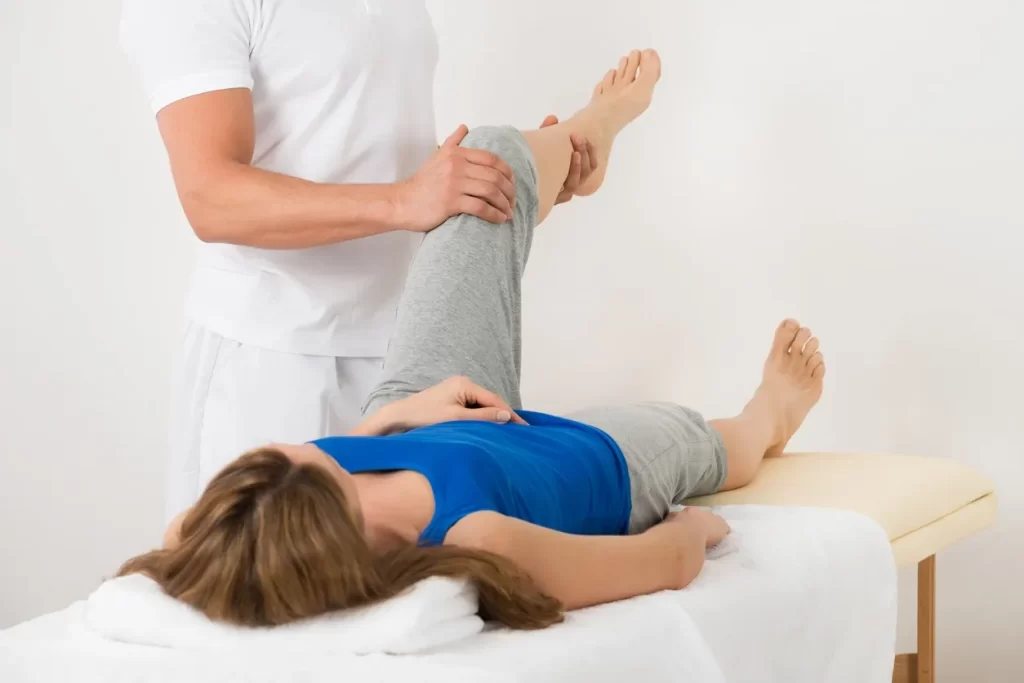
Osteopathy provides a holistic approach to treating PCL, MCL, and LCL injuries. It focuses on reducing pain, restoring mobility, and supporting the body’s natural healing processes.
Osteopathic care promotes a safe, effective recovery. It targets the injury while addressing compensatory strain and enhancing knee stability.
Here’s how osteopathy can help with knee ligament injuries:
Pain Relief and Reduction of Inflammation
Osteopathic techniques, including soft tissue massage, myofascial release, and lymphatic drainage, help to alleviate pain and reduce inflammation around the injured ligament.
Osteopathic treatments minimise swelling and support the body’s healing process by increasing circulation and encouraging the drainage of excess fluids. This approach provides patients with immediate relief and helps speed up recovery.
Restoring Knee Mobility and Flexibility With Osteopathy
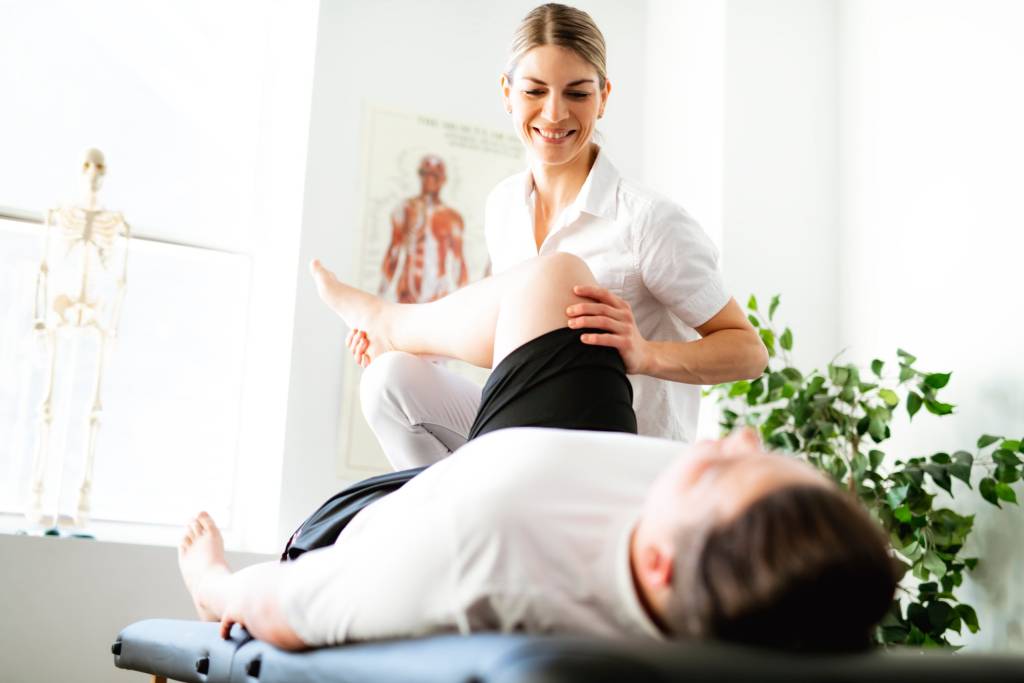
Ligament injuries often lead to stiffness, limiting knee mobility.
Osteopaths utilize joint mobilization techniques to gently restore flexibility in the knee joint, reducing stiffness and promoting a full range of motion. This may include gentle stretches, articulation, and muscle energy techniques that target restricted areas, allowing for gradual improvement in movement and comfort.
Strengthening the Knee for Long-Term Stability
Strengthening the muscles surrounding the knee is crucial for recovering from ligament injuries.
Osteopaths incorporate personalized exercises to engage the quadriceps, hamstrings, and calf muscles, enhancing knee stability and reducing re-injury risk. This aspect of osteopathic care is vital for regaining balance and ensuring that the knee is supported adequately as it heals.
Correcting Muscle Imbalances

When one ligament is injured, the body often compensates by altering movement patterns, which can lead to muscle imbalances or strain in other areas.
Osteopaths work to identify and address these compensations, focusing on balanced function across the hips, thighs, and lower back.
Osteopathic care improves alignment and promotes equal weight distribution, supporting a smoother recovery and helping prevent further complications.
Supporting Recovery Through Education and Lifestyle Guidance
Osteopathy emphasizes a holistic approach to healing, including lifestyle and self-care recommendations.
Osteopaths guide patients on stretches, exercises, and modifications to daily activities that can aid in recovery.
Patients learn to avoid movements or activities that may aggravate the injury, empowering them to take an active role in their healing journey.
Conclusion: The Path to Recovery with Chirn Park Health Group’s Knee Injury Osteopaths

Knee injuries involving the PCL, MCL, and LCL can profoundly impact mobility and daily life. Osteopathic care offers a practical, noninvasive approach to healing, focusing on pain relief, improved mobility, and long-term knee health.
At Chirn Park Health Group, our Gold Coast osteopaths for knee injuries are experienced in helping individuals recover from knee ligament injuries. They offer personalized treatment plans that promote effective recovery and support overall well-being.
Don’t wait to seek care if you’re dealing with knee pain or have experienced a PCL, MCL, or LCL injury. Our team of skilled osteopaths Gold Coast is here to provide specialized, compassionate support for your knee injury.
Contact Chirn Park Health Group today to start your path to recovery, regain mobility, and relieve pain with the guidance of our renowned knee injury osteopaths.
Let us help you return to your active lifestyle with confidence and comfort.


